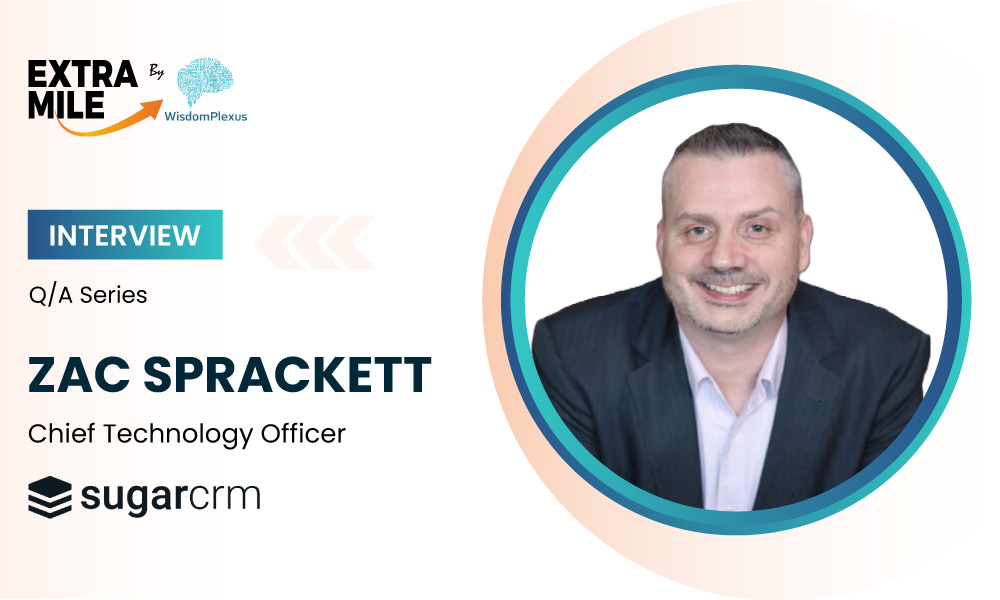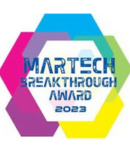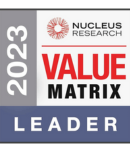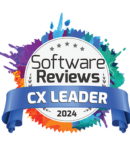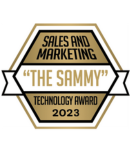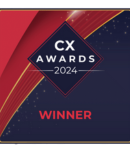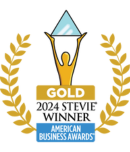Welcome to ExtraMile by WisdomPlexus, an exclusive interview series where industry leaders discuss innovations, tech trends, marketing tactics, and expert insights.
Today, we are thrilled to feature Zac Sprackett, Chief Technology Officer at SugarCRM, a leading CRM software that enhances marketing, sales, and service team efficiency with improved automation, data, and intelligence.
With nearly 30 years of experience in technology and leadership, Zac has been instrumental in advancing SugarCRM's mission to enhance customer relationships through intelligent automation and data-driven insights.
Join us as we explore Zac's journey, the impact of AI on customer experiences, and his vision for the future of customer relationship management.
1. You started your career as a software engineer at Corel Computers and are now working as a CTO of a leading CRM company. Could you share some important moments that helped you shape your career, especially your transition from a CPO to the CTO of SugarCRM?
Ans: It’s fun to reflect on my journey from fledgling software engineer at Corel Computer to my current role as Chief Technology Officer (CTO) of SugarCRM. I’ve had some great mentors, so for me, the moments that stand out are usually the lessons I’ve learned along the way. At Corel, I learned the importance of agility, scrappiness, and being part of a team. At Mitel, and VA Linux Systems, I had the opportunity to spend time in sales roles, which was different, but such a great experience. These roles got me out of my own head. They reminded me that no matter what I might think, I was not the customer. In addition to being humbling, the experience taught me the value of active listening and seeking to better understand customer need. At VA Linux Systems, I learned a lot about cloud operations and systems administration. This role taught me the importance of curiosity. It’s significantly easier to deliver highly available services when you push yourself to understand the details about how they operate, yet not everyone is curious enough to want to learn.
I’ve now been with Sugar for 14 years, which means I’ve been part of lots of change. I was originally hired to build our cloud-based Software as a Service (SaaS) offering. From there, I had the opportunity to drive product vision and strategy as Chief Product Officer (CPO). My most recent transition from CPO to CTO gives me the opportunity to focus on a wider technical vision. As CPO, my goal was to immerse myself and deeply understand the needs of our customers. I view the CTO role as a return to my roots. My focus is now to ensure that customer needs are fulfilled by scalable, secure, and innovative technologies that deliver tangible business value.
To be successful, our products must provide measurable value to the business, and they need to provide an experience that makes people excited to use them. At Sugar, that’s what we strive to deliver to our customers every single day.
2. Congratulations on winning the CRM Excellence Award for the fourth consecutive year! What do you think these awards say about how SugarCRM is helping its customers?
Ans: Thank you! We are incredibly proud of the industry accolades and awards Sugar has earned for excellence over the years. Winning the CRM Excellence Award four times is a testament to Sugar's unwavering dedication to customers. The judging process focuses on measurable outcomes and determining how effectively our products were able to meet customers’ needs. I believe that winning this award consistently shows that we are innovation leaders, and not simply chasing trends. We pride ourselves on our ability to address the fundamental, yet evolving needs of companies that succeed in building meaningful, long-term relationships with their customers.
It’s also a sign that our efforts, particularly around experience, intelligence, and account management, are making a difference and helping our global customer base slay their real-world dragons. Awards are an affirmation of our direction and at the same time, a challenge for the future. They confirm that we’re on the right path, but more importantly, they push us to improve. The CRM landscape is far from static; it’s rapidly evolving. At Sugar, it’s our job to push boundaries – not just to stay ahead of the curve, but to help customers redefine what it means to be customer-centric.
3. With your diverse technological skills and understanding of business needs, how do you think organizations can ensure their technology meets the client's needs?
Ans: I’m going to give you a surprisingly low-tech answer: Many organizations still overlook the human side of technology adoption. Even with the most cutting-edge technological solutions, change management is still a big hurdle. Businesses struggle to get their teams to understand and embrace new tools because they can’t clearly answer the crucial question, “What's in it for me, the user?” When employees don't see value in technology or fail to understand how it makes their lives easier and more efficient, they find reasons and mechanisms to work around it. Why wouldn’t they? They’re already overloaded and spread thin.
It’s critical that technology helps with this problem. At Sugar, we focus on data acquisition and activity capture. Our products automatically gather relevant firmographic information and news about prospects and customers so that employees don’t have to. This leads to more accurate information in CRM, time saved for employees, and more impactful conversations with customers.
Our products automatically collect information about activities as they're happening, gathering details from email, calendars and other business systems such as ERP (enterprise resource planning) to ensure it ends up in CRM. Historically, gathering this information involved a user summarizing and manually entering all of it. That’s not ideal. We think a lot about the ratio of value received to effort required. When tangible value is delivered and little effort is required, CRM shifts from a productivity tax for management oversight to a critical tool that fuels success.
4. Artificial intelligence is changing many industries. How is this technology making a difference in transforming customer experiences?
Ans: Collectively, businesses are feeling the pressure to provide more timely, accurate, and consistent responses. Consumers expect personalized responses and proactive communication.
When applied effectively, artificial intelligence (AI) already helps process large volumes of data quickly and efficiently. It offers predictions about the future, and it refines content on-the-fly in ways that were simply not possible just a few short years ago.
We’ve deeply integrated AI throughout the Sugar platform, helping sales teams prioritize opportunities and marketers prioritize leads. With our recent acquisition of sales-i bringing revenue intelligence to the platform, we’re unlocking value that was previously hidden inside ERP or finance systems. We analyze customer purchase history to highlight opportunities, identify risks, and surface trends to sales teams. We predict which products or services customers are most likely to purchase next and highlight opportunities that would otherwise be missed. The amazing part is that the fuel for the predictions already exists inside of every business. Traditionally, it’s just been locked away in a “black box,” but we’re changing that for our customers.
Deeply integrating generative AI (GenAI) is also critical. Most of the information that people interact with daily is unstructured, so gleaning insight from it can be challenging. GenAI allows us to add structure to previously unstructured information. Parsing these large volumes of information, such as emails, calendar events, documents, and all the various data points that exist with CRM, we’re able to deliver concise, actionable summaries, which explain the current situation, identify competition, highlight risks and opportunities, and suggest next-best actions. This is an example of technology changing the equation from drowning in data to being buoyed by insight or from a system of record to a system of insight and action.
At the same time, many companies are concerned about this technology and how to adopt it safely. We’ve worked hard to deliver AI to our customers responsibly and in a way that satisfies IT and compliance needs. We provide a trust layer that offers robust encryption, secure protocols, PII filtering, and audit capabilities to protect sensitive customer information. Sugar customers benefit from AI-driven insights without having to worry about losing control of critical business data.
5. As the CRM world keeps changing, what challenges do you think companies face today when it comes to managing their customer relationships?
Ans: Great question. There’s a lot of ways that I could try and answer, but I’ll focus on two key areas: First, we all feel like we’ve got data coming at us from everywhere. Social media, email, calendar, web interactions, in-store behavior, connected devices, financial systems, etc. We spend a lot of time talking about how data is a goldmine, but let’s face it, it's also completely overwhelming.
When that data isn’t properly curated, collected, organized, and most importantly understood, companies miss opportunities to add value. Simply gathering information isn’t enough. The customer journey must find and surface insights from within the data that add value to the experience, and frankly, still that’s hard to do.
In the meantime, consumer expectations continue to rise. We’re all consumers in our personal lives. We expect companies to remember our preferences and that future conversations will build upon our historical interactions. We demand fast responses, but we also want them to feel authentic. Businesses don’t even get to choose the channels anymore! Customers demand we deliver a consistent and connected experience across whatever channels they happen to engage us in.
And in case that wasn’t enough, consumers and regulators are exerting more oversight about how their data is collected and used. This means that balancing personalization with privacy is another hurdle.
While so much is changing, other things remain constant. Managing relationships is about understanding the customer's journey. Companies that remain siloed, either by organizational structure or by technology, will struggle to create seamless, unified experiences that respect the customer’s time and intelligence. Businesses that adapt and focus their efforts on the needs of their customers will continue to stand apart.
6. What features do you think are necessary for marketing, sales, and service teams to build better relationships with customers?
Ans: Having access to up-to-date and accurate information is critical. The best way to do this is by automatically capturing and updating information, whether from emails, calendar appointments, social media interactions, or third-party systems such as ERP or financial platforms. Ensuring that all teams are working with consistent, up-to-date, and relevant data is fundamental.
Seamless integration across different communication channels is also vital. Whether a customer interacts via email, phone, social media, conferencing software, or in-person, the experience should feel connected and consistent. By sharing consistent touchpoints, the marketing, sales, and service teams can collaborate effectively, and the customer journey feels more cohesive.
Prioritize automation that reduces manual effort, such as data entry or follow-up scheduling. We want our teams to focus on high-value activities. When the system manages the “leg work,” employees can spend more time building genuine relationships and delivering exceptional service.
Finally, don’t discount the importance of time. Customer relationships ebb and flow. Recording each of these fluctuations over time is important for making accurate AI predictions. Knowing when a customer last interacted with your company, when they are due for a follow-up, or when an issue might escalate, allows teams to be more proactive in their approach.
7. What is your perspective on the future of customer relationship management? What advice would you give to tech practitioners who want to make a real impact?
Ans: We already see more importance being placed on integration and orchestration. CRM systems are expected to connect and coordinate seamlessly across a wider range of tools and platforms than ever – from social media, e-commerce, finance and ERP systems – all the way to IoT devices deployed at customer sites. CRM systems operate at the core, providing a comprehensive view of the customer and executing cross-departmental playbooks and workflows.
The future of CRM is connected, intelligent, and proactive. It understands that customers are people, and not just a series of individual data points. AI and machine learning will evolve, gathering better insight, driving deeper personalization and enabling smarter decision-making. Future CRM must anticipate customer needs, offering predictive insight, enabling proactive outreach, and creating just in time content. Companies that understand will thrive.
The only constant in our industry is change. Staying relevant means being curious, acquiring new skills, experimenting with emerging trends, and being willing to change direction when necessary. A mentor once told me that most of the hard technology problems are long solved; most of what’s left are very human challenges. Don’t get so wrapped up in technology that you forget the human aspect of solving problems. In a surprising number of situations, navigating the human element is the most interesting and challenging piece of the puzzle.
For newer technologists entering the industry, I’d offer the following: Never stop learning who your customer is and keep them at the center of everything you do. Technology is a means to an end. How can you leverage it to solve more problems, and create more value for your customers.
Discover Our Other Informative Interview:

